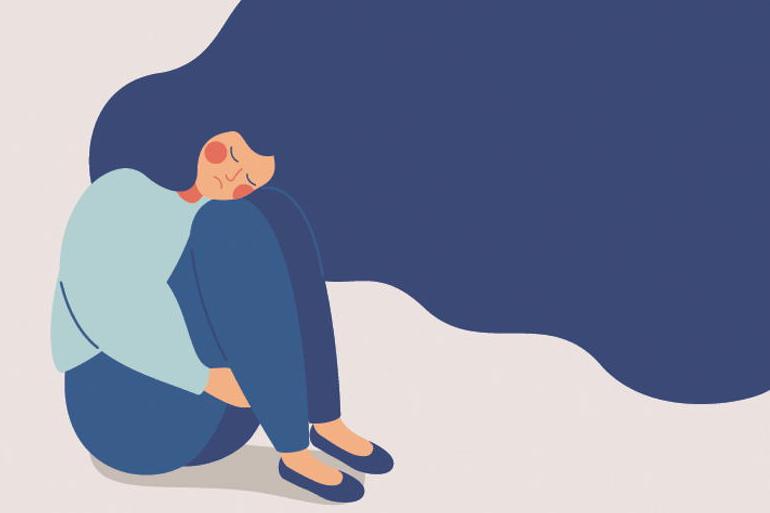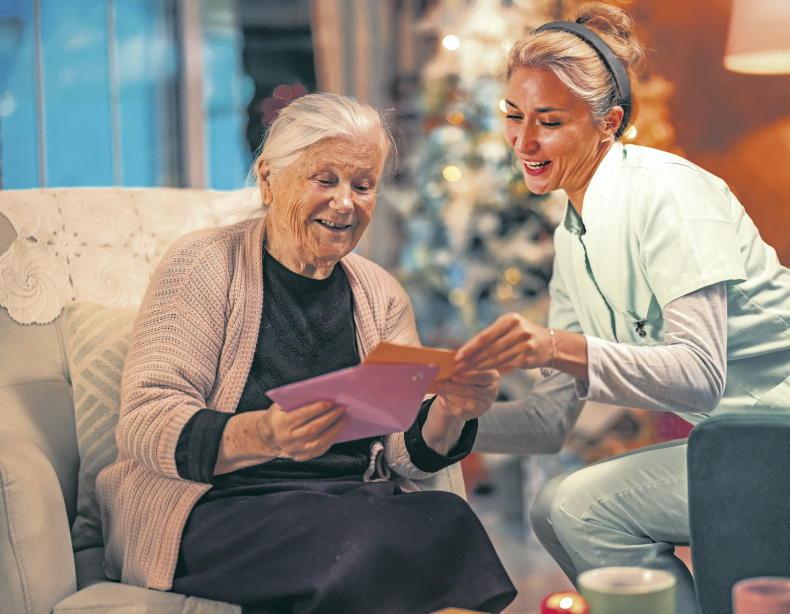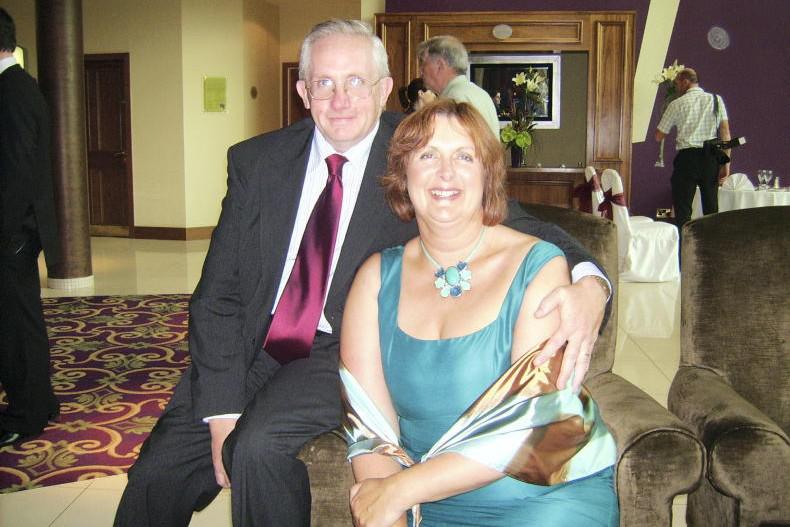“Grief is the intense emotional response to the pain of a loss. It is the reflection of a connection that has been broken. Most important, grief is an emotional, spiritual and psychological journey to healing.” – Elisabeth Kubler-Ross,
On Grief & Grieving
In general, people who are grieving find themselves surrounded by love, support, offers of help, and they find comfort and consolation in people’s kindness and willingness to be there.
Not every grieving person will be blessed by such experiences. The reason for this relates to the source of their grief. If it is not recognized or deemed inappropriate by society, or goes against cultural norms, then the grieving person is left feeling abandoned and alone as they try to come to terms with their loss. This is known as “disenfranchised grief”. The loss is conflicting to what is deemed acceptable to society, with the result that shame, guilt and fear may set in.
Examples of disenfranchised grief
Many will be familiar with the stories of women taking the boat to England and possibly the US for decades to have their babies in secret and given up for adoption and in other cases, seeking abortion. Everything was kept hush-hush, the neighbours must never find out, and God only knows what penance one might expect to be meted out were it to be told in confession. This was also the case for the women who ended up in the mother and baby homes. It is unimaginable the emotional pain they had to endure in silence.
Couples who experience a miscarriage/stillbirth can feel very much alone in their grief. Nobody has seen their precious baby, therefore people tend to forget and move on. The mother who carried her little baby inside of her, even if it was for a few weeks, knows the loss more than anybody else. She felt the connection straight away, felt her body change and felt the love and bond once she “knew” there was a new life growing inside of her.
Following the miscarriage/stillbirth, she may experience many emotions including guilt, anger, trauma and the fear of not being able to have more children. The Dad who is also grieving – which is often not recognised– may be unsure how to support her, in case he gets it wrong. Caught up in their own individual grief, they are unable to be truly available to each other emotionally for some time. Women who seek abortion feel pressurised into keeping it a secret as they fear judgement, and as a result may not seek support.
A person who is having an affair and whose lover dies is left lost and alone in his or her grief. Having an affair, understandably, is not deemed acceptable in society, yet people do and there are always underlying emotional causes as to why this happens. The bereaved lover therefore grieves in secret.
Animal loss
When a pet dies, the owner can feel a tremendous loss and sense of loneliness and despair. The old myth that a pet can be replaced anytime is untrue. In time, a new pet may bring joy and purpose again to one’s life, but it takes a while.
Equally, people who work all the time with animals, birds, fish, and other living creatures, will feel their loss. Dairy cows in particular can be huge pets. I remember as a child, all our cows had names, and I know this goes on in many other farms too. Farmers can experience immense grief if some or their entire herd of cattle fails a TB or similar test and have to be sold to the factory for slaughter. Seeing the animals you worked with for many years, maybe three generations, being loaded on to a truck is heart-breaking.
Grieving non-death losses
We also grieve following non-death related losses. The ending of a relationship, financial loss, having to move home, health-related losses or a diagnosis. Not conforming to family or cultural traditions can lead to isolation and separation from the family, or perhaps the church, maybe both. The term “scapegoat” describes this experience. The person is shunned, abandoned, left to get on with it, and their grief goes unrecognised.
Disenfranchised grief is also common following loss due to infertility, adoptions where the birth mother changes her mind at the last minute or IVF treatment that fails. These are just some examples, there are many more.
Whatever the experience is, we have the right to mourn each individual loss. We do not need anybody’s permission to grieve or have our pain validated. It is important to let go of seeking validation from others. Look inwards, go to your heart centre. Our true feelings are all inside of us, allow them to be.
Krista St Germain, a master certified life coach and grief expert, wrote the following: “Do not tell yourself you shouldn’t feel the way you do. The more you can open up to the truth of how you feel and process those emotions instead of resisting or avoiding them, the easier it is to integrate the loss.”
Other people don’t have to understand your feelings in order for you to process them and take care of yourself, she adds.
Getting support
There are many coping mechanisms available to all who grieve. In cases where people are experiencing disenfranchised grief, I strongly recommend seeking professional support. Counselling offers each person a safe, confidential and non-judgmental space to talk and share their story. When we suppress our emotions, all those feelings eventually turn inward and can lead to dark, deep depression and suicide ideation.
Reach out to someone who truly cares for you and is available to support you for as long as you feel that need.
Ignoring disenfranchised grief can lead to complicated grief. Complicated grief is related to our response to a loss, disenfranchised grief is about the nature of it.
Other coping strategies include:
Journaling: It is so good to write down our feelings. We are off-loading them onto the paper and it helps lighten that emotional burden we are carrying on our shoulders, in our hearts and in so many other parts of our body. Planting a tree: A tree can bring much comfort and joy as it grows and matures. Equally, a rose bush or other shrub of your choice can also have the same effect. We remember them in a place of beauty.Lighting a candle: This simple gesture has brought comfort to thousands over the years. It can be in your home, in a church, at a grotto, wherever it is, the flickering flame casts a beautiful glow and helps us feel a connection to our loved ones in spirit (including pets).Walks in nature: Whether alone or with a good friend, when you walk among the trees for a while, in silence, eventually you will find yourself feeling calm and grounded, and at peace. Trees give off a beautiful energy and we absorb it as we walk amongst them. A walk on the beach can also bring balm to our soul. Yoga and other complementary therapies: We are mind, body and spirit. For a healthy life, we need to look after all aspects of our psyche. Support groups related to your particular type of loss.Remember, your grief is individual to you. You have the power to validate it. Let go of expecting others to do this for you. Many simply do not understand, they have not travelled that road themselves. Others experiencing disenfranchised grief may be unable to offer you empathy and understanding as they have not yet processed their own pain and loss.
Be kind to you in your grief. It is the price we pay for love, and we must grieve in order to heal.
“May the grace of time heal your wounds
May you know that though the storm might rage
Not a hair on your head will be harmed.”
– John O Donohue, Benedictus
Psychotherapist Claire Lyons Forde is based in Co Kerry and offers therapy in person, as well as online or over the phone. For further information, call 087-939-9818.
Read more
Speaking up and out about the 'silent treatment'
“Grief is the intense emotional response to the pain of a loss. It is the reflection of a connection that has been broken. Most important, grief is an emotional, spiritual and psychological journey to healing.” – Elisabeth Kubler-Ross,
On Grief & Grieving
In general, people who are grieving find themselves surrounded by love, support, offers of help, and they find comfort and consolation in people’s kindness and willingness to be there.
Not every grieving person will be blessed by such experiences. The reason for this relates to the source of their grief. If it is not recognized or deemed inappropriate by society, or goes against cultural norms, then the grieving person is left feeling abandoned and alone as they try to come to terms with their loss. This is known as “disenfranchised grief”. The loss is conflicting to what is deemed acceptable to society, with the result that shame, guilt and fear may set in.
Examples of disenfranchised grief
Many will be familiar with the stories of women taking the boat to England and possibly the US for decades to have their babies in secret and given up for adoption and in other cases, seeking abortion. Everything was kept hush-hush, the neighbours must never find out, and God only knows what penance one might expect to be meted out were it to be told in confession. This was also the case for the women who ended up in the mother and baby homes. It is unimaginable the emotional pain they had to endure in silence.
Couples who experience a miscarriage/stillbirth can feel very much alone in their grief. Nobody has seen their precious baby, therefore people tend to forget and move on. The mother who carried her little baby inside of her, even if it was for a few weeks, knows the loss more than anybody else. She felt the connection straight away, felt her body change and felt the love and bond once she “knew” there was a new life growing inside of her.
Following the miscarriage/stillbirth, she may experience many emotions including guilt, anger, trauma and the fear of not being able to have more children. The Dad who is also grieving – which is often not recognised– may be unsure how to support her, in case he gets it wrong. Caught up in their own individual grief, they are unable to be truly available to each other emotionally for some time. Women who seek abortion feel pressurised into keeping it a secret as they fear judgement, and as a result may not seek support.
A person who is having an affair and whose lover dies is left lost and alone in his or her grief. Having an affair, understandably, is not deemed acceptable in society, yet people do and there are always underlying emotional causes as to why this happens. The bereaved lover therefore grieves in secret.
Animal loss
When a pet dies, the owner can feel a tremendous loss and sense of loneliness and despair. The old myth that a pet can be replaced anytime is untrue. In time, a new pet may bring joy and purpose again to one’s life, but it takes a while.
Equally, people who work all the time with animals, birds, fish, and other living creatures, will feel their loss. Dairy cows in particular can be huge pets. I remember as a child, all our cows had names, and I know this goes on in many other farms too. Farmers can experience immense grief if some or their entire herd of cattle fails a TB or similar test and have to be sold to the factory for slaughter. Seeing the animals you worked with for many years, maybe three generations, being loaded on to a truck is heart-breaking.
Grieving non-death losses
We also grieve following non-death related losses. The ending of a relationship, financial loss, having to move home, health-related losses or a diagnosis. Not conforming to family or cultural traditions can lead to isolation and separation from the family, or perhaps the church, maybe both. The term “scapegoat” describes this experience. The person is shunned, abandoned, left to get on with it, and their grief goes unrecognised.
Disenfranchised grief is also common following loss due to infertility, adoptions where the birth mother changes her mind at the last minute or IVF treatment that fails. These are just some examples, there are many more.
Whatever the experience is, we have the right to mourn each individual loss. We do not need anybody’s permission to grieve or have our pain validated. It is important to let go of seeking validation from others. Look inwards, go to your heart centre. Our true feelings are all inside of us, allow them to be.
Krista St Germain, a master certified life coach and grief expert, wrote the following: “Do not tell yourself you shouldn’t feel the way you do. The more you can open up to the truth of how you feel and process those emotions instead of resisting or avoiding them, the easier it is to integrate the loss.”
Other people don’t have to understand your feelings in order for you to process them and take care of yourself, she adds.
Getting support
There are many coping mechanisms available to all who grieve. In cases where people are experiencing disenfranchised grief, I strongly recommend seeking professional support. Counselling offers each person a safe, confidential and non-judgmental space to talk and share their story. When we suppress our emotions, all those feelings eventually turn inward and can lead to dark, deep depression and suicide ideation.
Reach out to someone who truly cares for you and is available to support you for as long as you feel that need.
Ignoring disenfranchised grief can lead to complicated grief. Complicated grief is related to our response to a loss, disenfranchised grief is about the nature of it.
Other coping strategies include:
Journaling: It is so good to write down our feelings. We are off-loading them onto the paper and it helps lighten that emotional burden we are carrying on our shoulders, in our hearts and in so many other parts of our body. Planting a tree: A tree can bring much comfort and joy as it grows and matures. Equally, a rose bush or other shrub of your choice can also have the same effect. We remember them in a place of beauty.Lighting a candle: This simple gesture has brought comfort to thousands over the years. It can be in your home, in a church, at a grotto, wherever it is, the flickering flame casts a beautiful glow and helps us feel a connection to our loved ones in spirit (including pets).Walks in nature: Whether alone or with a good friend, when you walk among the trees for a while, in silence, eventually you will find yourself feeling calm and grounded, and at peace. Trees give off a beautiful energy and we absorb it as we walk amongst them. A walk on the beach can also bring balm to our soul. Yoga and other complementary therapies: We are mind, body and spirit. For a healthy life, we need to look after all aspects of our psyche. Support groups related to your particular type of loss.Remember, your grief is individual to you. You have the power to validate it. Let go of expecting others to do this for you. Many simply do not understand, they have not travelled that road themselves. Others experiencing disenfranchised grief may be unable to offer you empathy and understanding as they have not yet processed their own pain and loss.
Be kind to you in your grief. It is the price we pay for love, and we must grieve in order to heal.
“May the grace of time heal your wounds
May you know that though the storm might rage
Not a hair on your head will be harmed.”
– John O Donohue, Benedictus
Psychotherapist Claire Lyons Forde is based in Co Kerry and offers therapy in person, as well as online or over the phone. For further information, call 087-939-9818.
Read more
Speaking up and out about the 'silent treatment'









SHARING OPTIONS